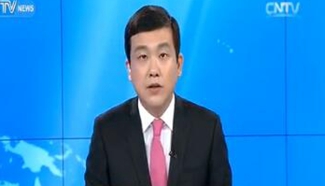WASHINGTON, Dec. 26 (Xinhua) -- A new experimental drug called cimaglermin may help restore cardiac function after heart failure, a study in humans said Monday.
Although heart failure is one of the leading causes of death worldwide, many patients, particularly those with severe left ventricular systolic dysfunction, do not sufficiently respond to current medical therapy, according to the study published by the Journal of the American College of Cardiology (JACC): Basic to Translational Science.
For this study, researchers enrolled 40 heart failure patients who were taking optimal medical therapy for at least three months prior to the trial.
Compared to patients who received a placebo, patients who received a single infusion of cimaglermin, which acts as a growth factor for the heart, had a sustained increase in left ventricular ejection fraction, or pumping capacity, through 90 days after dosing, with the maximum increase reached at day 28.
"These findings support continued clinical development of the investigational drug cimaglermin, including further safety evaluations and detailing the potential improvement on clinical heart failure outcome measures," lead author Daniel Lenihan of the Vanderbilt University, said in a statement.
The most common side effects were headache and nausea, which were temporarily associated with exposure to the drug.
One patient receiving the highest planned dose of cimaglermin experienced an adverse reaction that met the stopping criteria of the U.S. Federal Drug Administration guidance for drug-induced liver injury.
Douglas Mann, editor-in-chief of JACC: Basic to Translational Science, called the resutls "exciting" despite the small numbers of patients involved.
"Instead of blocking the fundamental mechanisms that lead to cardiac injury, the early results with cimaglermin suggest that it may also be possible to administer therapeutics that allow the failing heart to repair itself using its own repair mechanisms," Mann said.
"If the results of this study can be replicated and translated into improvements in clinical outcomes in larger numbers of patients in phase II and III clinical trials, it will represent a paradigm shift in the way in which clinicians treat patients with heart failure."










